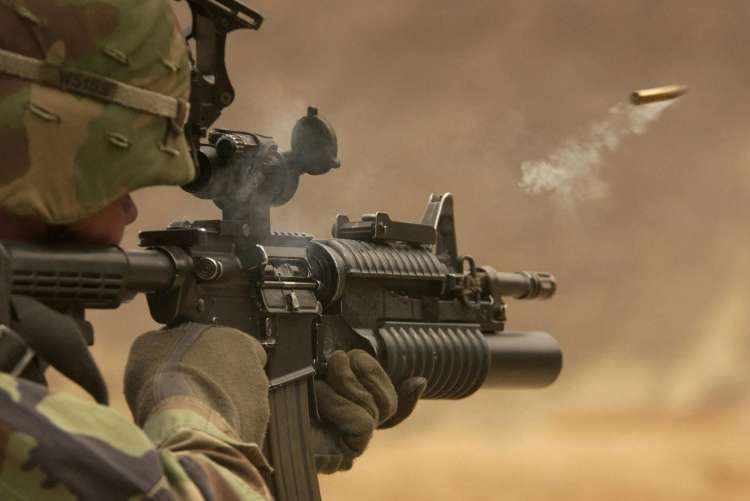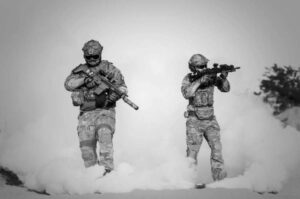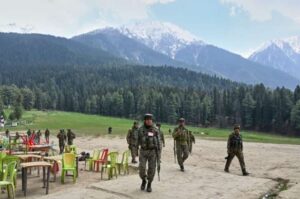
Modern war and narratives: From the earliest days of civilisation, war has played a central role in shaping economies and societies. Whether through the spoils of conquest or the long haul of post-war reconstruction, conflict has often powered economic transformation—sometimes in visible ways, other times through more insidious shifts. The destruction and rebuilding that follow war have laid the foundation for new economic orders and rising powers, led by leaders who used conflict as a tool for national resurgence or imperial expansion.
Yet the gains from war have never been confined to material wealth alone. Wars have been catalysts for social and cultural change, forcing societies to rethink entrenched ideologies and reimagine their futures. The aftermath of conflict has birthed new narratives, reordered hierarchies, and redefined the values of entire civilisations. Whether fought over resources, belief systems, or territorial ambition, wars have consistently altered not just borders, but the very architecture of societies.
But the nature of war has changed. In today’s hyper-connected, inflation-strained world, conflict is no longer just about soldiers on battlefields or the signing of treaties. We live in an era where the first casualty is often not life or infrastructure—but the truth. The battle for the narrative now begins before the first shot is fired.
READ I Satellite internet push hots up with Starlink entry
The first strike is the story
Modern warfare is as much about perception as it is about military prowess. Whoever controls the timeline—whoever gets their version of the story out first—often controls the perception. And in a media-saturated environment, perception can weigh as much as ammunition.

From hashtags to headlines, war is now waged in the realm of public opinion. Every policy decision, military operation, and diplomatic statement is subjected to relentless scrutiny and instantaneous feedback. The public is no longer a passive spectator but an active participant, resharing, reframing, and sometimes reshaping the conflict in real time. Victory no longer belongs solely to those with the superior strategy, but to those who can craft the most compelling, emotionally resonant narrative for a distracted, digitally-immersed audience.
Modern wars, inflation and impatience
In a high-inflation world, governments have less time to build consensus for war. Domestic fatigue sets in faster. Public support becomes conditional on immediate, visible outcomes. Conflict must be economically defensible, narratively persuasive, and executed with speed. Inflation does more than raise prices—it amplifies discontent. As citizens wrestle with rising costs, they lose patience for slow-moving military campaigns and opaque policy justifications.
The modern citizen, grappling with the cost of living, is far less tolerant of prolonged war. This shifts how conflicts are initiated, framed, and concluded. Governments must now fight not only external enemies but the erosion of domestic support under economic strain.
The evolving machinery of war
The instruments of war have also changed. It is no longer the exclusive domain of nation-states and uniformed armies. Modern wars are shaped by an eclectic mix of actors: defence-tech CEOs, social media influencers, think tanks, private military contractors, and partisan media outlets.

Power has become diffused. The storyteller matters as much as the general. The pipeline of influence is neither linear nor neutral, and the outcome of a conflict is increasingly defined by who can shape the public’s understanding of it. In this reality, victory means controlling not only events on the ground but the version of events that the world comes to believe.
Misinformation as a weapon
In modern wars, misinformation is not a byproduct—it’s a weapon. Disinformation campaigns have become standard tools of modern warfare, used to undermine trust, provoke overreactions, and destabilise the enemy’s strategic position. A doctored video, a misleading headline, or a viral lie can inflict more damage than a missile strike.
Governments and media institutions must now be as alert to the risks of manipulated content as they are to military threats. The frontlines of today’s conflicts run through servers, smartphones, and social feeds, where truth is often the first to be sacrificed.
The economic angle
Perhaps the most decisive front in modern warfare is economic. War today is deeply embedded within a fragile and interconnected global economy. Inflationary pressures, supply chain shocks, and financial volatility mean that a regional conflict can quickly spiral into a global crisis.
Economic warfare—through sanctions, trade restrictions, and financial disruption—has become a primary strategy. A strike on energy infrastructure in one country can ripple through global markets, send currency values into free fall, and trigger panic in boardrooms continents away.
The economic consequences of war now extend far beyond the battlefield. They impact everything from food security to monetary policy. And as governments struggle to maintain fiscal credibility and social stability, military ambitions must be weighed against their economic toll.
Rewriting the future
In this transformed world, the question is no longer just who wins the war—but who gets to write its aftermath. The true victor is often the one who shapes the reconstruction, authors the post-war narrative, and steers public sentiment toward renewal.
Modern warfare demands more than tactical superiority. It requires narrative mastery, economic agility, and the ability to command legitimacy in a cynical world. The most powerful weapon today may not be a drone or a hypersonic missile—but the pen, the press, and the platform.
Victory in modern wars lies in perception, in policy, and in the ability to define what is built after the dust settles. War is no longer just about destruction. It’s about construction—of meaning, of consensus, of new geopolitical and economic realities. The first draft of the future belongs to those who can tell the most persuasive story. And in the information age, that story travels faster—and matters more—than ever before.
Srinath Sridharan is a strategic counsel with 25 years experience with leading corporates across diverse sectors including automobiles, e-commerce, advertising and financial services. He understands and ideates on intersection of finance, digital, contextual-finance, consumer, mobility, Urban transformation, and ESG. Actively engaged across growth policy conversations and public policy issues.

